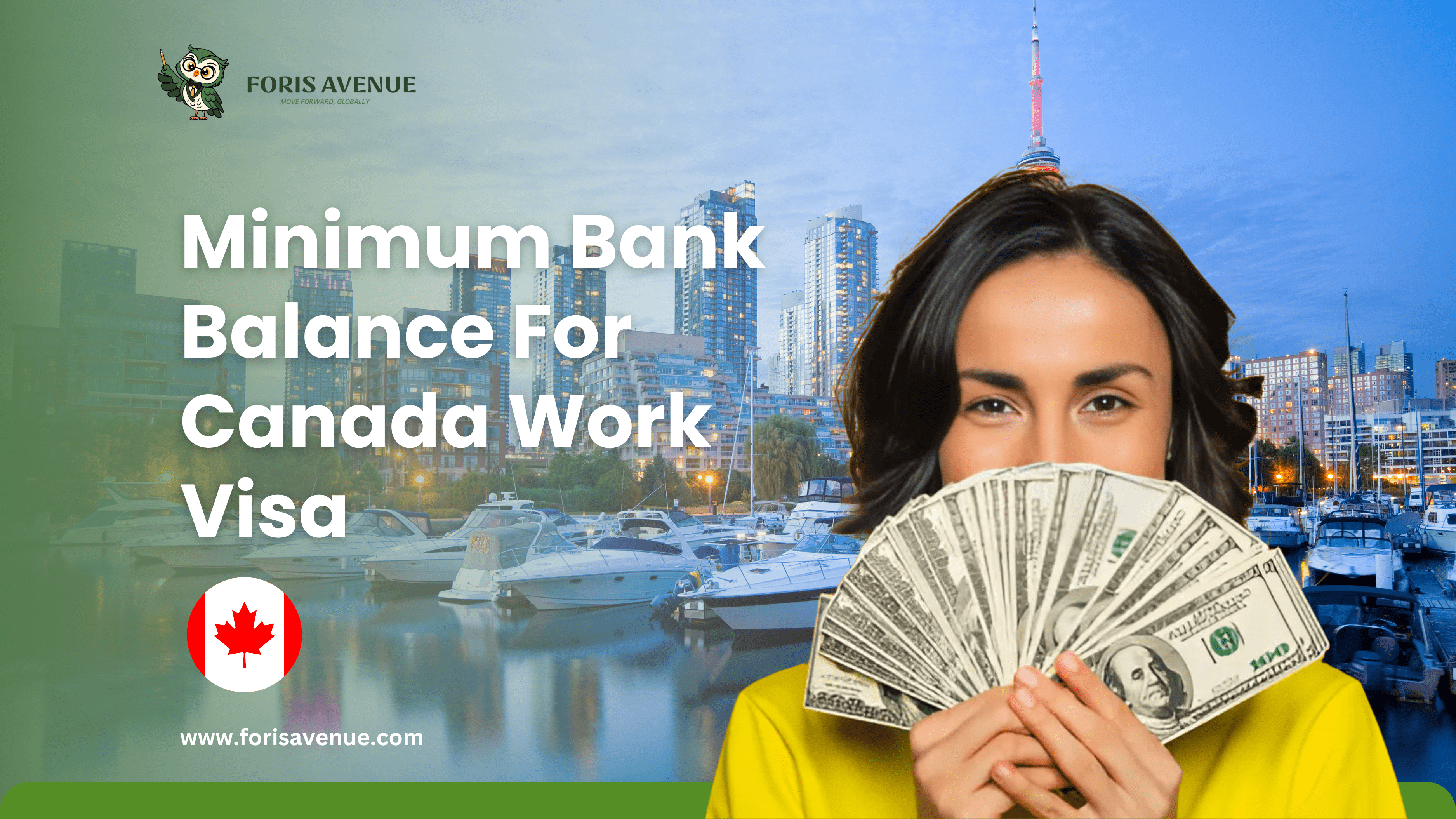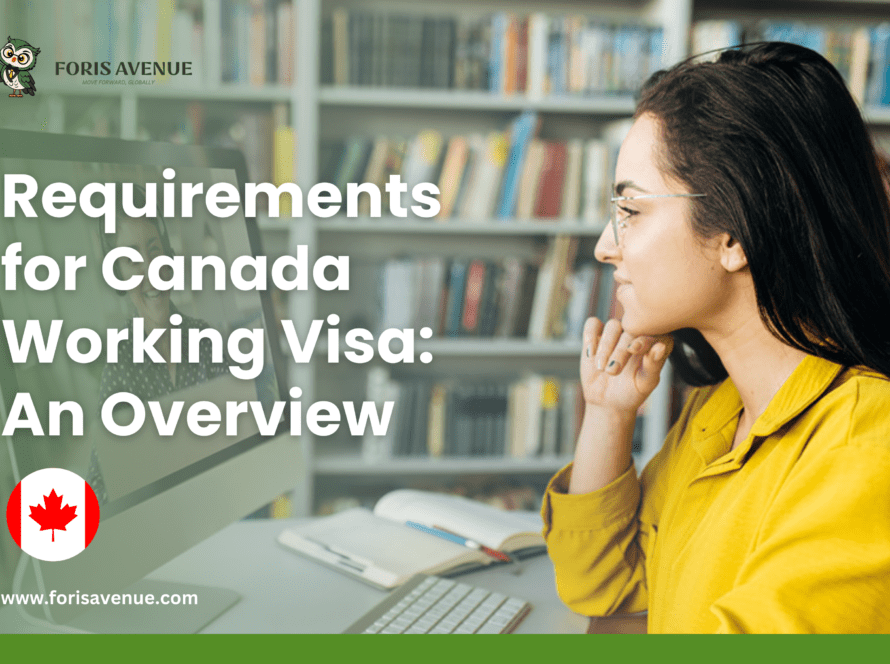
Introduction
So, you’re dreaming of working in Canada, eh? Whether it’s the snow-capped Rockies calling your name or the bustling streets of Toronto, Canada’s work opportunities are endless. But before you pack your bags, there’s a crucial thing you need to sort out—your finances. Specifically, the Minimum Bank Balance For Canada Work Visa. Sounds like a mouthful, doesn’t it? Don’t sweat it! We’re here to break it down in plain English, so you can move forward with confidence.
In this article, we’ll explore the ins and outs of what’s required, how to show proof of funds, and the myths that might just be scaring you for no good reason. Ready to dive in? Let’s go!
Understanding the Minimum Bank Balance Requirement
Why Do You Need a Minimum Bank Balance For Canada Work Visa?
When applying for a Canada work visa, one of the requirements is to demonstrate that you have sufficient funds to support yourself while you’re in the country. The Canadian government wants to make sure you won’t be financially stranded, relying on their welfare system. Makes sense, right?
But here’s the kicker: the Minimum Bank Balance For Canada Work Visa isn’t the same for everyone. It depends on factors like the type of work visa you’re applying for, the size of your family, and even where you plan to live in Canada. Confused yet? Don’t worry—we’ll break it down for you.
How Much Money Do You Need?
The exact amount you need to have in your bank account can vary, but generally, you should have enough to cover your living expenses for at least six months. Let’s talk numbers.
- Single Applicant: If you’re applying alone, a good rule of thumb is to have around CAD 10,000 to CAD 12,000 in your bank account. This covers your basic needs like rent, food, transportation, and other living expenses.
- With Family: Planning to bring your spouse or kids? You’ll need more—approximately CAD 4,000 to CAD 5,000 extra for each additional family member.
- Rural vs. Urban: Where you plan to live in Canada can also impact the Minimum Bank Balance For Canada Work Visa. Cities like Vancouver and Toronto have a higher cost of living, so you might need a bit more. Conversely, if you’re heading to a smaller town, the cost will likely be lower.
What Counts as Proof of Funds?
Here’s where it gets a bit tricky. You can’t just say you’ve got the money; you need to prove it. But what exactly counts as proof?
- Bank Statements: The most common form of proof is your bank statements from the past six months. The statements should show that the funds have been in your account for some time, not just a last-minute transfer.
- Fixed Deposits: If you have money locked away in fixed deposits, you can use those too. Just make sure they’re easily accessible and aren’t locked away for years to come.
- Investments: Stocks, bonds, mutual funds—these can all count as proof of funds, provided they can be liquidated easily.
- Gift Deeds: Got a generous relative who’s willing to help out? A gift deed, properly documented, can also be used as proof of funds.
Common Misconceptions and Myths
Myth #1: You Only Need Money for the Visa Fee
One common misconception is that you only need to show enough money to cover your visa application fee. Sorry to burst your bubble, but that’s not the case! While the visa fee is certainly important, it’s the proof of your financial stability—like the Minimum Bank Balance For Canada Work Visa—that will make or break your application.
Myth #2: The Money Must Be in a Canadian Bank
Another myth that trips people up is the idea that the money must be in a Canadian bank account. Not true! The funds can be in any recognized bank in your home country. Just ensure that the statements are clear, authentic, and preferably in English or French.
Myth #3: You Can Borrow Money to Show as Proof
Thinking about taking out a loan to show you’ve got the required funds? Think again. The money in your account needs to be genuinely yours. If immigration officials suspect that you’ve borrowed the funds just for the sake of the visa application, you could be in hot water.
How to Prepare Your Finances for a Canada Work Visa
Start Saving Early
It’s no secret that saving money takes time, especially when you’re aiming for a substantial amount like CAD 10,000 or more. The earlier you start, the better off you’ll be. Create a savings plan, set up automatic transfers to your savings account, and watch your funds grow over time.
Keep Your Finances Transparent
Immigration officials aren’t just looking at the number in your account; they’re looking at the history. A sudden influx of cash might raise eyebrows, so aim for consistency. Regular deposits, a steady account balance, and a clear transaction history will help build your case.
Consult with a Financial Advisor
If you’re unsure about how to meet the financial requirements or how to present your proof of funds, consider consulting with a financial advisor. They can provide tailored advice based on your situation and help you navigate the process with ease.
Frequently Asked Questions (FAQs)
1️⃣ Can I use a joint bank account as proof of funds?
Yes, you can use a joint bank account as proof of funds, but only if you have full access to the funds. If the account is shared with someone else, you’ll need a letter from the co-owner confirming that you can use the funds for your Canada work visa.
2️⃣ How long do the funds need to be in my account?
The funds should have been in your account for at least three to six months prior to your visa application. This demonstrates financial stability and reassures immigration officials that the money is genuinely yours.
3️⃣ Do I need to maintain the minimum balance after my visa is approved?
Once your visa is approved and you’ve entered Canada, there’s no official requirement to maintain the Minimum Bank Balance For Canada Work Visa. However, it’s wise to keep some savings handy, as the initial months in a new country can be financially demanding.
4️⃣ Can I use a business account as proof of funds?
Generally, personal accounts are preferred. However, if you’re self-employed and your business account is your primary source of income, you might be able to use it. Be prepared to provide additional documentation to explain the source of the funds.
5️⃣ What happens if my bank balance fluctuates?
Minor fluctuations are usually acceptable, but significant drops in your bank balance might raise concerns. It’s best to keep your balance steady and avoid large withdrawals during the visa application process.
Conclusion
The road to securing a Canada work visa might seem a bit daunting, especially when it comes to meeting the Minimum Bank Balance For Canada Work Visa. But with a clear understanding of the requirements, the types of proof you can provide, and the common pitfalls to avoid, you’re well on your way to making your Canadian dream a reality.
Remember, the key is preparation. Start saving early, keep your finances transparent, and seek professional advice if needed. With the right approach, you’ll not only meet the requirements but exceed them—making your transition to Canada smooth and worry-free.
So, are you ready to take the plunge? Canada’s waiting!
If you are feeling stuck or confused, don’t forget to take the help of an experienced immigration consultant like ForisAvenue consultancy. Get a FREE assessment from ForisAvenue’s Canada immigration experts NOW.
📞Call us: +971 54 303 3993
📲WhatsApp: wa.me/971543033993
🌐 Website: https://www.forisavenue.com
📩 Email: mailto:in**@*********ue.com” data-original-string=”yAdx4lb5Yyo9eeRpQlk3Ew==597moY8BJOABVEuhvASRBfhOjB7Y7QPS0+8MFDeOK33PgY=” title=”This contact has been encoded by Anti-Spam by CleanTalk. Click to decode. To finish the decoding make sure that JavaScript is enabled in your browser.




